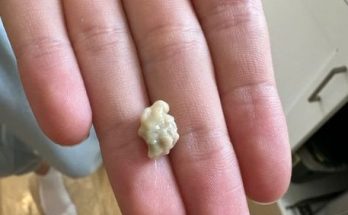Soda is a popular beverage worldwide, but its regular consumption can lead to various health issues. From weight gain to adverse effects on bone health, soda’s high sugar content and chemical additives pose risks that extend beyond empty calories. Here’s a breakdown of some detrimental effects these drinks have on the body.
Contributing to Weight Gain

Soda is a significant source of added sugars, with little to no nutritional value. Liquid sugars like those in soda bypass the body’s natural satiety mechanisms, leading to overconsumption of calories. Studies show that individuals who consume sugary beverages daily are more likely to gain weight and become obese compared to non-consumers.
Impact on Bone Health

A common concern about soda, particularly colas, is their potential to weaken bones. While phosphoric acid has been thought to impact calcium metabolism negatively, evidence shows this isn’t necessarily the case. The real issue is displacement: soda often replaces calcium-rich drinks like milk in the diet, leading to lower calcium intake. Adequate calcium consumption can counteract any potential bone-related effects of caffeine in colas, ensuring stronger bones in the long term.
Blood Sugar and Diabetes Risk

Sugary sodas contribute to rapid spikes in blood sugar levels, increasing insulin resistance over time. Consuming even one soda daily has been linked to a higher risk of developing type 2 diabetes. In fact, a study found that for every 150 calories of sugar added to the daily diet, the risk of diabetes increased by 1.1%.
Non-Alcoholic Fatty Liver Disease (NAFLD)

Fructose, a key component in soda, is metabolized in the liver. Excessive consumption can lead to fat accumulation, contributing to non-alcoholic fatty liver disease (NAFLD). Over time, this condition can progress to severe liver complications, emphasizing the importance of limiting sugary beverage intake.
Read More: Fatty Liver: Causes, Symptoms, Treatment & Home Remedies
Dental Health Decline

Soda’s combination of acids and sugars creates an environment that promotes tooth decay. Phosphoric and carbonic acids erode enamel, while sugars feed bacteria that produce additional acids. Regular soda consumption significantly increases the risk of cavities and dental infections.
Cardiovascular Risks

Long-term soda consumption is linked to increased blood pressure, higher LDL cholesterol levels, and greater risk of heart disease. Studies suggest that drinking just one soda per day raises the likelihood of heart attack or death from cardiovascular causes by 20%.
Bone-Friendly Alternatives

Replacing soda with calcium-rich beverages like milk or fortified plant-based drinks can support bone health, especially for children and adolescents. Carbonated mineral waters, particularly those high in calcium, are excellent soda substitutes that offer hydration without the adverse health effects.
A Chance of Gout

Sugary beverages are associated with increased uric acid levels, a major risk factor for gout. Fructose in soda contributes directly to uric acid production, and regular consumption raises the risk of gout significantly—up to 75% in women and nearly 50% in men.
Something Else to Drink?

While soda might seem like an innocent indulgence, its long-term effects on health are far-reaching. From weight gain and diabetes to weakened bones and heart issues, soda offers little beyond its immediate sugary taste. Replacing it with healthier alternatives like water, herbal teas, or calcium-rich beverages can significantly improve overall health and reduce the risk of chronic diseases



